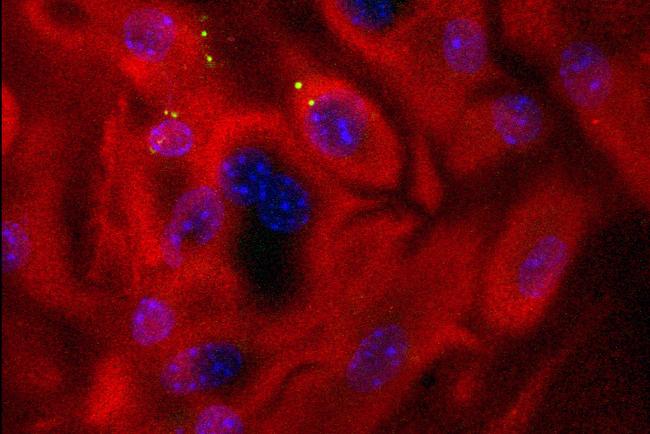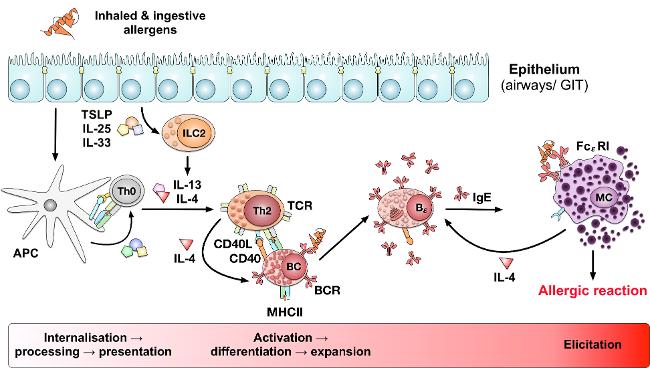Molecular Allergology Research Group
Research at the President
 Source: Paul-Ehrlich-Institut
Source: Paul-Ehrlich-Institut
Research Focus
The prevalence of IgE-mediated (type I) allergies is increasing worldwide. Our modern life style is accompanied by a high standard of hygiene and fewer microbial infections. These factors in association with the geographical spreading of allergens as a result of climate change are potentially contributing to the increasing incidence of allergic diseases.
Both, pathogenesis and mechanism of allergen-specific immunotherapy (AIT) are still not fully elucidated. Current AIT frequently is inconvenient for patients, and can sometimes be accompanied by unwanted adverse side effects. Although allergen-specific immunotherapy is well established for certain inhalant allergies, it can be less effective depending on the type of allergy. Therefore, novel immunotherapy strategies to enhance safety and efficacy have become an important area of investigation.
Our research focuses on the underlying mechanisms for the pathogenesis of allergic diseases, the molecular characterization of food and inhalant allergens, and their applications in in vitro diagnosis as well as for the development of novel intervention strategies for the prevention and treatment of IgE-mediated allergies. In line with this, experimental mouse allergy models, and mouse and human in vitro cell culture assays have been utilized to elucidate the pathology of (food) allergies and the immune modulation by recombinant vaccine candidates.
The prebiotic effect of fibre is being studied in cooperation with the Hospital Universitario de Malaga (Natalia Pérez Sánchez & Lina Mayorga), as well as in the DAAD-JSPS PPP project with Tohoku University, Graduate School of Agricultural Science, Food and Biomolecular Science, Sendai, Japan (Masako Toda). An additional cooperation was officially arranged in April 2025 with the Graduate School of Agricultural Science within the framework of a graduate program established there by academic exchange.

 The pathogenesis of IgE-mediated allergies is characterized by a predominantly TH2 immune response and production of allergen-specific IgE antibodies.
Source: Paul-Ehrlich-Institut
The pathogenesis of IgE-mediated allergies is characterized by a predominantly TH2 immune response and production of allergen-specific IgE antibodies.
Source: Paul-Ehrlich-Institut
Research Group Head
Dr Stephan Scheurer
Publications
Email: Stephan.Scheurer@pei.de
top




